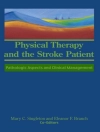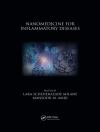Progressively more and more attention has been paid to how location affects health outcomes. The area of disease mapping focusses on these problems, and the Bayesian paradigm has a major role to play in the understanding of the complex interplay of context and individual predisposition in such studies of disease. Using R for Bayesian Spatial and Spatio-Temporal Health Modeling provides a major resource for those interested in applying Bayesian methodology in small area health data studies.
Features:
- Review of R graphics relevant to spatial health data
- Overview of Bayesian methods and Bayesian hierarchical modeling as applied to spatial data
- Bayesian Computation and goodness-of-fit
- Review of basic Bayesian disease mapping models
- Spatio-temporal modeling with MCMC and INLA
- Special topics include multivariate models, survival analysis, missing data, measurement error, variable selection, individual event modeling, and infectious disease modeling
- Software for fitting models based on BRugs, Nimble, CARBayes and INLA
- Provides code relevant to fitting all examples throughout the book at a supplementary website
The book fills a void in the literature and available software, providing a crucial link for students and professionals alike to engage in the analysis of spatial and spatio-temporal health data from a Bayesian perspective using R. The book emphasizes the use of MCMC via Nimble, BRugs, and CARBAyes, but also includes INLA for comparative purposes. In addition, a wide range of packages useful in the analysis of geo-referenced spatial data are employed and code is provided. It will likely become a key reference for researchers and students from biostatistics, epidemiology, public health, and environmental science.












